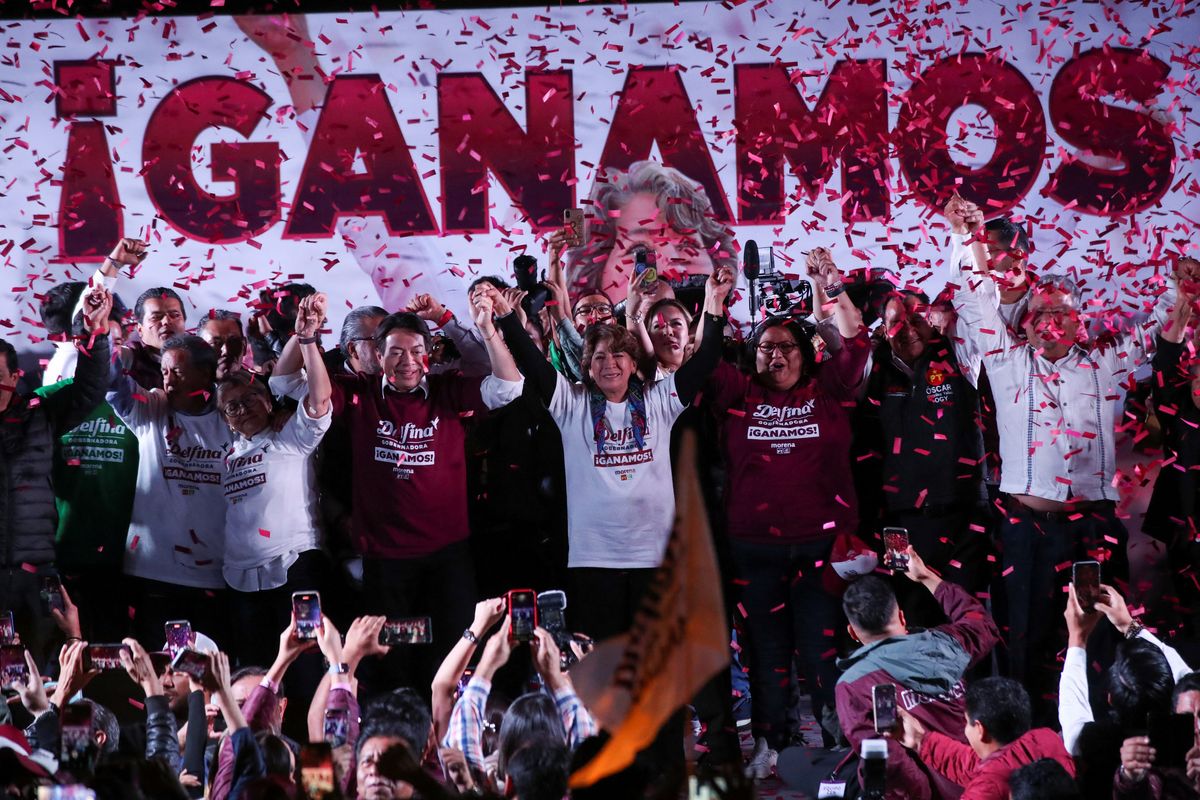Mexico's ruling Morena Party on Sunday won a bellwether election in the State of Mexico. This is good news for President Andrés Manuel López Obrador, aka AMLO.
For one thing, Mexico is the country's most populous state and has outsize weight in national politics as it hugs the federal capital, Mexico City, and its diverse composition signals wider voter trends. For another, the left-wing Morena defeated the centrist Institutional Revolutionary Party, or PRI, which had ruled the state for almost 100 years and is languishing in the political doldrums under AMLO.
But election night also delivered a warning for the president and his party: In a separate vote, the PRI walloped Morena in Coahuila. Although this border state is much smaller than the State of Mexico, Morena lost because party infighting resulted in the ruling coalition running three rival candidates, which siphoned key support from Morena's pick.
"AMLO will confirm that his political calculations continue to be spot-on as he managed to transfer his popularity to his party's candidate," says Eurasia Group analyst Matías Gómez Léautaud.
This is crucial for Morena to stay in power 13 months out from the presidential election since AMLO is limited to one term. It's an open secret that his preferred successor is Mexico City Mayor Claudia Sheinbaum, now the presumptive frontrunner despite some internal opposition. For Gómez Léautaud, "AMLO's overbearing presence and control will impede any schisms within the party to translate into rival candidacies from disaffected candidates."



















